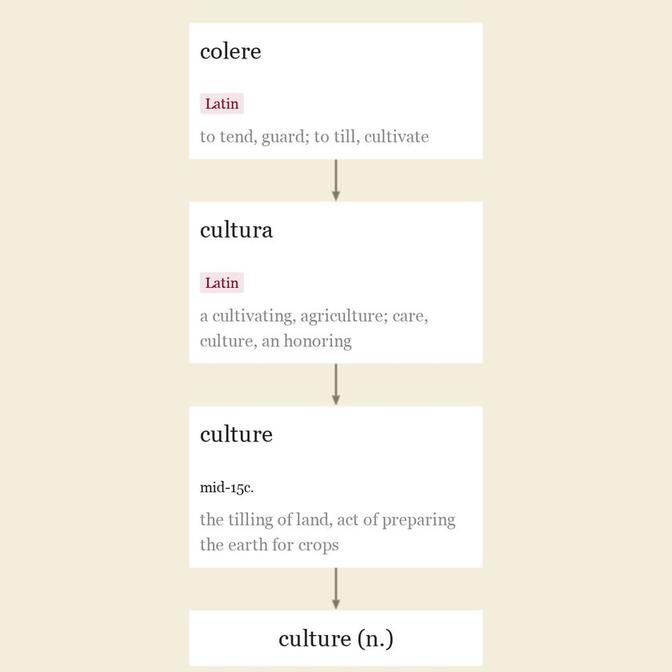kultur n.
1914, originally, "
Entries linking to kultur

mid-15c., "
The figurative sense of "
For without culture or holiness, which are always the gift of a very few, a man may renounce wealth or any other external thing, but he cannot renounce hatred, envy, jealousy, revenge. Culture is the sanctity of the intellect. [William Butler Yeats, journal, 7 March, 1909]
Slang culture vulture "
1879, originally in reference to the struggle (1872-86) between the German government and the Catholic Church over control of educational and ecclesiastical appointments, German, literally "
also *kwelə-, Proto-Indo-European root meaning "
It forms all or part of: accolade; ancillary; atelo-; bazaar; bicycle; bucolic; chakra; chukker; collar; collet; colonial; colony; cult; cultivate; culture; cyclamen; cycle; cyclo-; cyclone; cyclops; decollete; encyclical; encyclopedia; entelechy; epicycle; hauberk; hawse; inquiline; Kultur; lapidocolous; nidicolous; palimpsest; palindrome; palinode; pole (n.2) "
It is the hypothetical source of/evidence for its existence is provided by: Sanskrit cakram "
updated on April 12, 2016